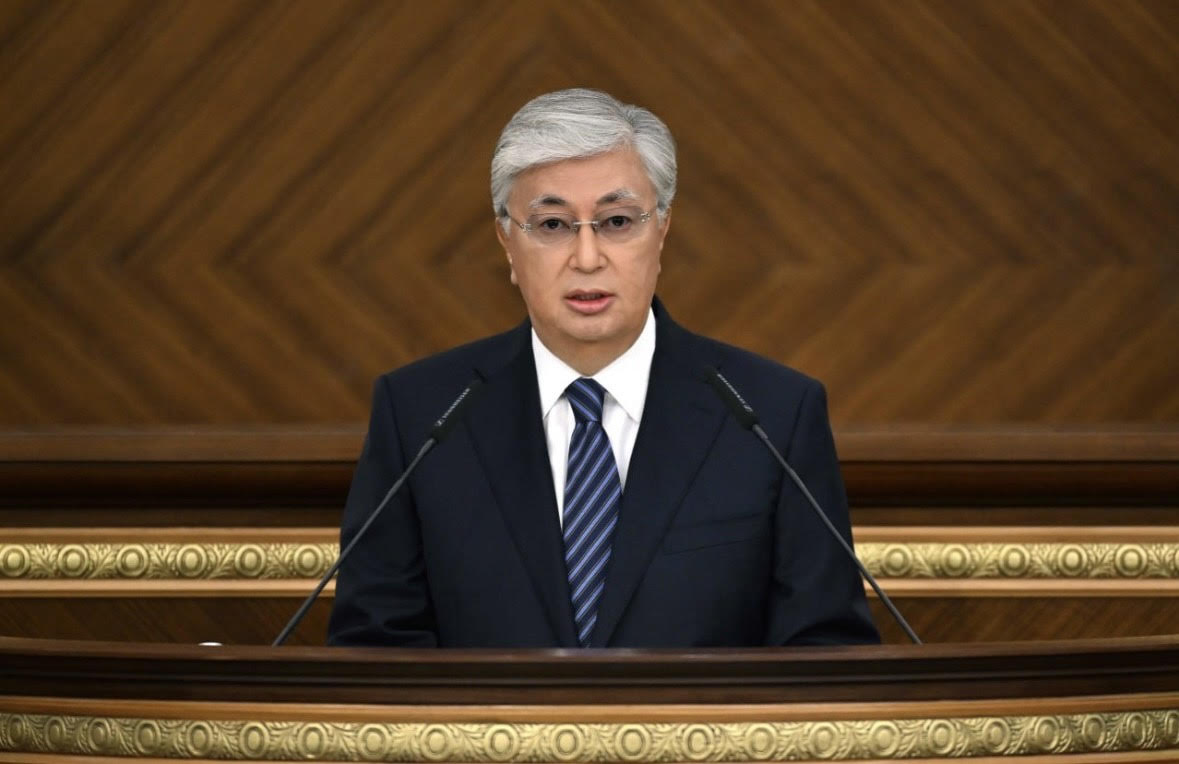President of the Republic of Kazakhstan, Kassym-Jomart Tokayev, delivered an annual Address to the people of Kazakhstan, titled “The Economic Course of a Fair Kazakhstan,” at a joint meeting of the Houses of Parliament.

Astana, September 1, 2023 – President of the Republic of Kazakhstan, Kassym-Jomart Tokayev, delivered an annual Address to the people of Kazakhstan, titled “The Economic Course of a Fair Kazakhstan,” at a joint meeting of the Houses of Parliament.
Along with the deputies of the Mazhilis and the Senate, heads of central government bodies, members of the National Kurultai, the Commission on Human Rights, the National Commission on Women's Affairs and Family and Demographic Policy, representatives of the public, and labor collectives took part in the event.
The head of state spoke about the large-scale political reforms being carried out in the country. “The measures taken have made it possible to ensure an optimal balance between the branches of power... The formula “a strong President – an influential Parliament – an accountable Government” has taken root even more. We have to actually put into practice the principles of a “hearing state,” and here a special role is assigned to the Parliament,” the President of Kazakhstan said in his Address.
K. Tokayev reported on achievements in the field of human rights protection, large-scale work to ensure the rule of law and justice. At the same time, the President stated that Kazakhstan needs to combine political reforms with deep and comprehensive socio-economic transformations. The President expressed hope for a transition to a new economic model for the development of Kazakhstan, the defining principles of which will be fairness, inclusiveness, and pragmatism.
Among the key outlines of the upcoming structural economic transformations, the following were noted: accelerated development of the manufacturing sector; introduction of new approaches in the country's trade policy; a breakthrough in the agro-industrial complex of Kazakhstan; expanding the geography of exports of Kazakhstani goods in foreign markets; strengthening the military-industrial complex; modernization of the infrastructure of Kazakhstan; development of an energy security strategy, gasification of the country, construction of new gas processing plants; development of a green economy; solving issues of transboundary water use, introducing water-saving technologies, and much more.
The President of Kazakhstan paid special attention to the implementation of the country’s transport and logistics potential. The realization of transport potential depends on our constructive and good neighborly relations with all neighboring countries without exception, including Russia, China, and our good neighbors in Central and South Asia.
The President especially emphasized that Kazakhstan must gradually but steadily distance itself from the model of a raw materials state.
According to the Head of State, the goal of the reforms is stable economic growth of 6-7 percent in order to double the volume of the national economy to $450 billion by 2029.
“Kazakhstan has a clear image of the future: we are building a Fair Kazakhstan – a country of equal opportunities and progress. We are creating an effective state in which law and order, a culture of dialogue, responsibility, and solidarity prevail. We strive to be part of the open modern world, developing culture, education, and science,” the President stated in his Message.
He expressed concern about the global challenges and threats facing the world community (climate change, food security, technological race), and the President is convinced that Kazakhstan will firmly follow its course.
In conclusion, K. Tokayev noted that to build a Just Kazakhstan, political and economic reforms alone are not enough: a change in the consciousness of society and the aspirations of citizens is required. This is the deep meaning of the concept of “Adal Azamat,” which originates from Abai’s teaching about the “Perfect Man.”